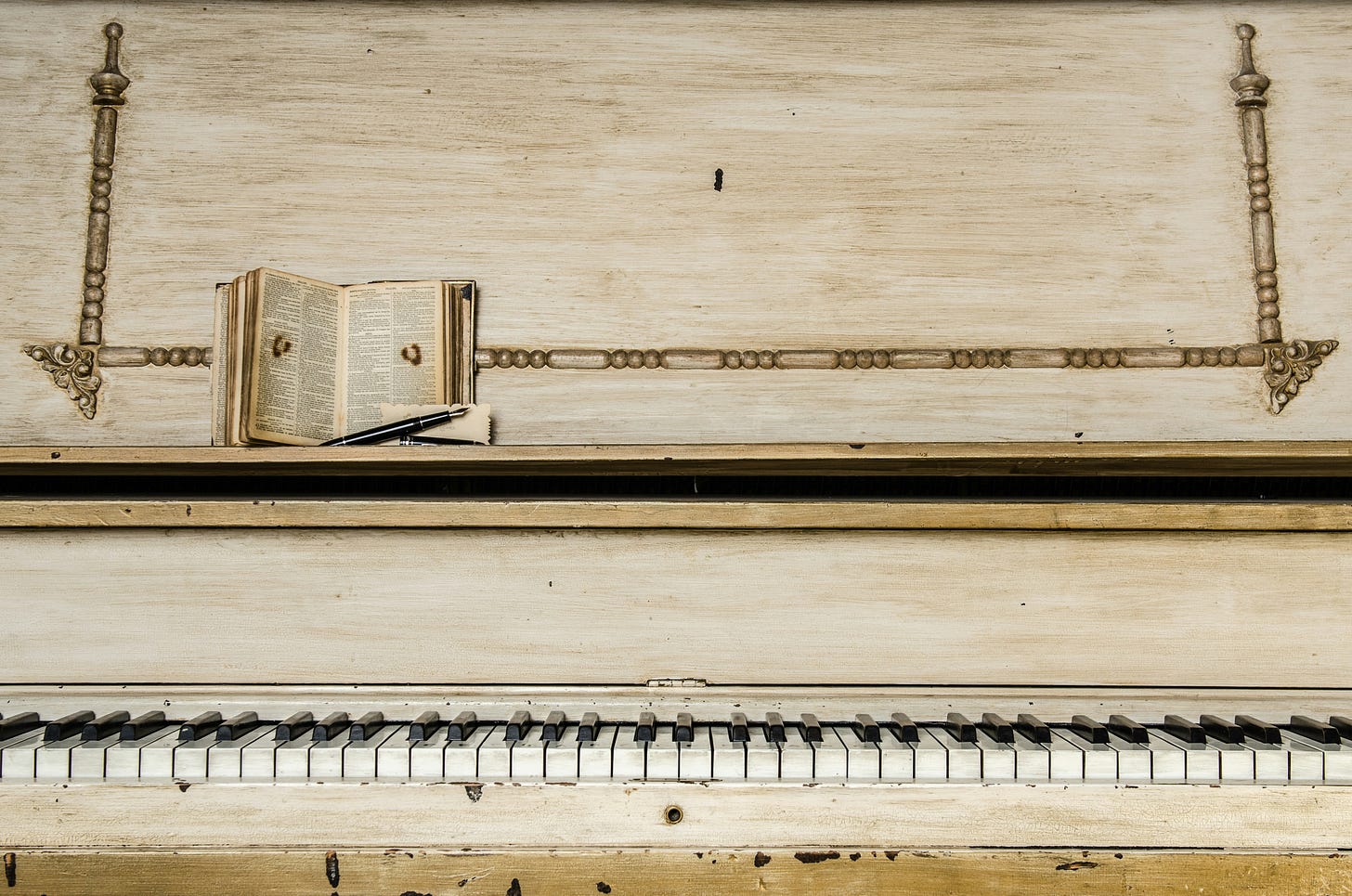What is Sacred Music?
Harmonizing the Divine: Crafting Sacred Music.
Music has the extraordinary ability to touch our souls, evoke deep emotions, and connect us with the divine. Here at Simon on Songs I’ve already talked about a couple of ideas for songwriting your best work:
A sacred space, and
But, the idea of sacred music started something I’ve been thinking about more and more after moving to a lovely little city (arguably the smallest city in England) to Wells in Somerset. It’s not only just really close to lovely countryside and spectacular beaches close by, but it also houses one of the most beautiful and largest Cathedral in Europe. It’s also the Cathedral that is linked to a brilliant musical school, Wells Cathedral School, which is why we are here with my youngest son, Barty now at to do his last two years of schooling.
Anyway, since we arrived a few months ago, it made me think about a few things regarding my own work: What is sacred music? Should the excellence in music here in Wells not somehow link with my friends in Christian music in Nashville? And what’s the best way to actually write sacred music anyway? These are all open questions I’ve not figured out answers for. But it is something I’m looking at more and more.
What is Sacred Music?
Sacred music holds a special place in our hearts as it bridges the gap between the earthly and the spiritual. Harmonizing with the Devine. Crafting sacred music to link worship with liturgy.
Harmonizing the Divine: Crafting Sacred Music
Sacred music transcends the ordinary, channeling the sacred and spiritual into melodious form. Whether through hymns, chants, or grand choral and orchestral works, sacred music seeks to elevate the human spirit and draw us closer to God, Himself. It often features themes of faith, devotion, love and reverence so let’s see how this works.
I’d be honest, despite having circa 500 songs published as a songwriter, I am still on my journey, but I’ve a few ideas already which might help you if you are also on this track with me.
How to Write Sacred Music
I wish there was a single process for writing sacred music but in reality, just like writing any kind of a song, there are many different ways to write it. While I’ve had some success in writing hymns (YouTube) creating sacred music is a profound and rewarding endeavour. Here’s a few steps I’m on right now –
Connect with Your Faith: Start by connecting with your spiritual beliefs. Whether you consider yourself a super-religious kind of person or have a personal spiritual practice, your beliefs will shape the essence of your sacred composition.
Select Appropriate Text: The lyrics or text of your sacred music are of paramount importance. They should resonate with your beliefs and convey a message that touches the soul. Consider using the Bible, especially psalms, sacred texts, prayers, or even your own heartfelt expressions.
Compose with Reverence: Approach the composition process with a sense of reverence and humility. Allow your music to flow organically, as if it’s a channel for divine inspiration. Experiment with harmonies, melodies, and instrumentation that evoke a sense of spirituality.
Consider the Setting: Think about the context in which your sacred music will be performed. Will it be a solo piece, a choral arrangement, or something else? Tailor your composition to the intended setting and audience.
Embrace Diversity: Remember that sacred music is incredibly diverse. It can span various musical genres, from Gregorian chants to gospel, from classical to contemporary. Embrace the style that resonates most with your own journey.
Examples of Sacred Music
Just like Christian Music had a broad diversity in genres, Sacred Music is also diverse. Here’s a examples to demonstrate this –
Gregorian Chant - “Ave Maria” (YouTube)
Johann Sebastian Bach - “St. Matthew Passion” (YouTube)
George Frideric Handel - “Massiah” (YouTube)
Other, various examples (YouTube)
Whether you’re a seasoned composer or a novice, you can embark on a sacred music journey by connecting with your faith in God, choosing meaningful text, composing with reverence, considering the setting, and embracing diversity in style. Let the examples of sacred music guide and inspire you as you craft your own spiritual masterpiece.
Questions
Here are some questions –
What are the core beliefs and spiritual themes you want to convey through your music?
Which sacred texts or prayers resonate most deeply with your spiritual journey?
How can you infuse your composition with a sense of reverence and humility to touch the hearts of your audience?
As you embark on this sacred musical voyage, remember that your music has the power to uplift, inspire, and forge a profound connection between the earthly and the divine.
Hope this helps!
Simon.


